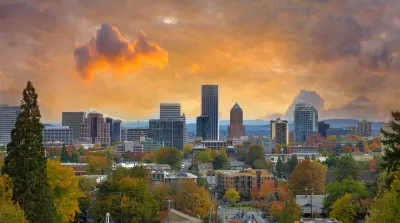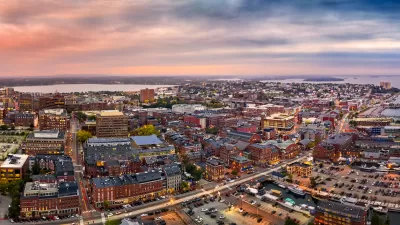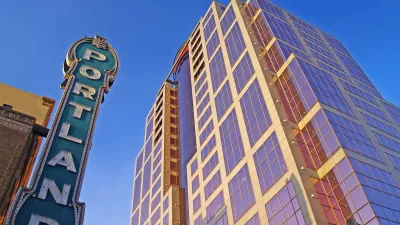A proposal to dissolve the groups has led to a debate about their purpose and who really benefits from them.

Gordon R. Friedman reports that a proposal to eliminate the almost 100 neighborhood associations in Portland, Oregon, from the city code has revealed divides in the city:
Neighborhood activists view themselves as representatives of grassroots Portlanders and the distinctive parts of town they inhabit. Detractors see the associations as entrenched, overly powerful voices for homeowners, who tend to be older, white and opposed to housing density, homeless shelters and other development helpful to a growing city’s health.
Friedman says how exactly the changes would take effect are not entirely clear. However, the associations would lose the special powers that give them a voice on city government actions, including zoning decisions. But activists say that the neighborhood associations focus largely on the everyday needs of residents and the transparency of civic government would be lost without them.
Critics contend that the neighborhood associations do not represent all residents, and too often they have blocked or delayed development. "Housing and renter advocates have an ally in [Chloe] Eudaly [of Office of Community & Civic Life], who said the city government needs a new paradigm for engaging residents," writes Friedman.
FULL STORY: Emotions flare as Portland, long friendly to neighborhoods, weighs gutting their powers

Study: Maui’s Plan to Convert Vacation Rentals to Long-Term Housing Could Cause Nearly $1 Billion Economic Loss
The plan would reduce visitor accommodation by 25,% resulting in 1,900 jobs lost.

North Texas Transit Leaders Tout Benefits of TOD for Growing Region
At a summit focused on transit-oriented development, policymakers discussed how North Texas’ expanded light rail system can serve as a tool for economic growth.

Why Should We Subsidize Public Transportation?
Many public transit agencies face financial stress due to rising costs, declining fare revenue, and declining subsidies. Transit advocates must provide a strong business case for increasing public transit funding.

How Community Science Connects People, Parks, and Biodiversity
Community science engages people of all backgrounds in documenting local biodiversity, strengthening connections to nature, and contributing to global efforts like the City Nature Challenge to build a more inclusive and resilient future.

Alabama: Trump Terminates Settlements for Black Communities Harmed By Raw Sewage
Trump deemed the landmark civil rights agreement “illegal DEI and environmental justice policy.”

Dear Tesla Driver: “It’s not You, It’s Him.”
Amidst a booming bumper sticker industry, one writer offers solace to those asking, “Does this car make me look fascist?”
Urban Design for Planners 1: Software Tools
This six-course series explores essential urban design concepts using open source software and equips planners with the tools they need to participate fully in the urban design process.
Planning for Universal Design
Learn the tools for implementing Universal Design in planning regulations.
City of Santa Clarita
Ascent Environmental
Institute for Housing and Urban Development Studies (IHS)
City of Grandview
Harvard GSD Executive Education
Toledo-Lucas County Plan Commissions
Salt Lake City
NYU Wagner Graduate School of Public Service





























